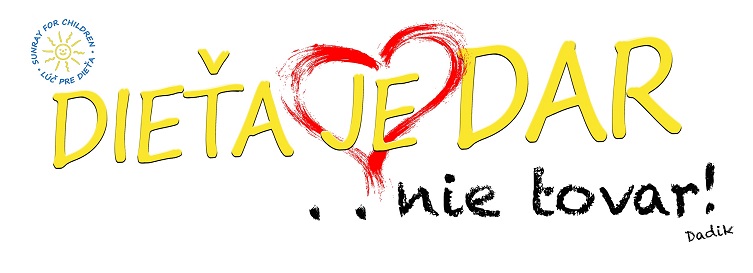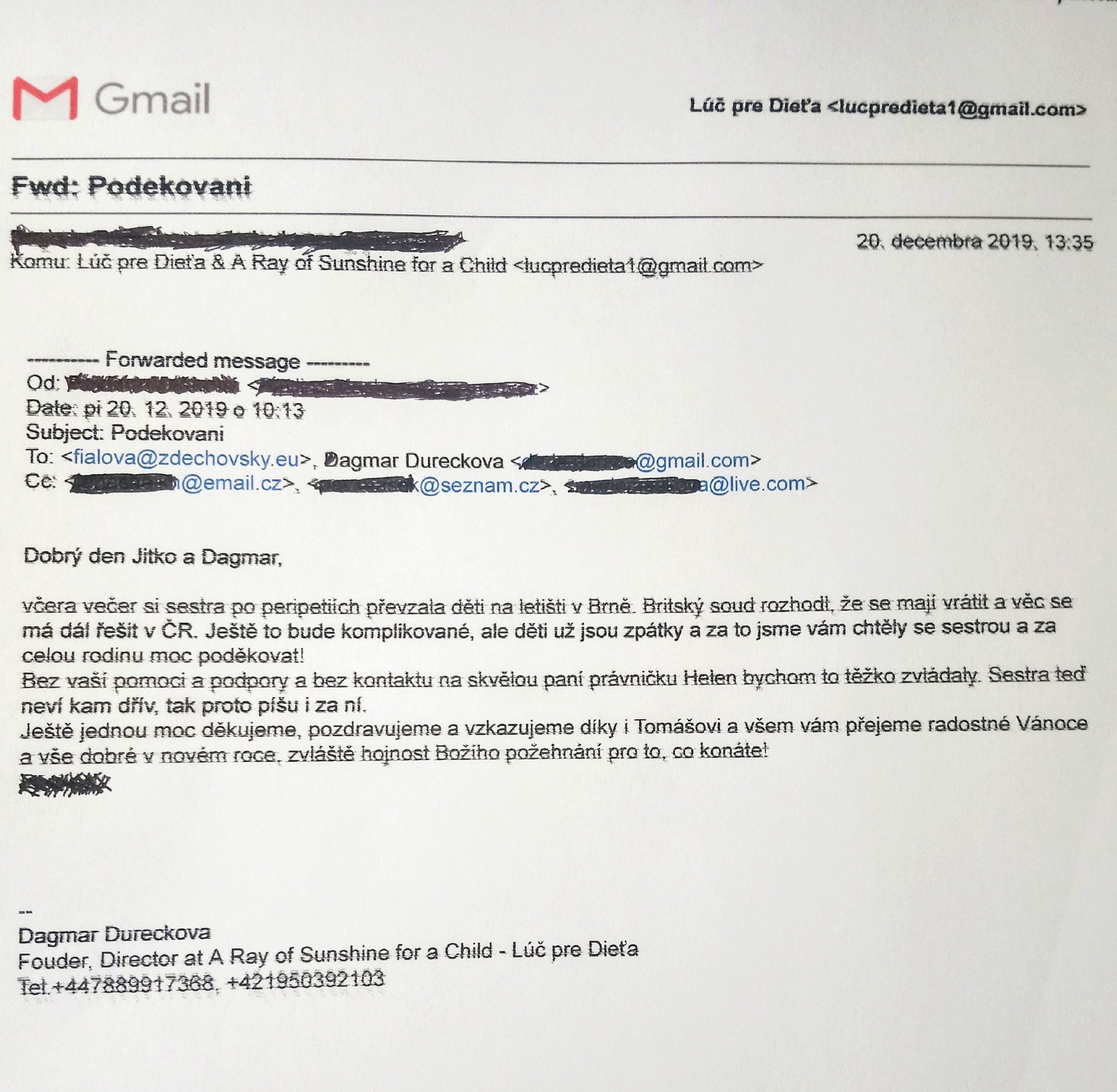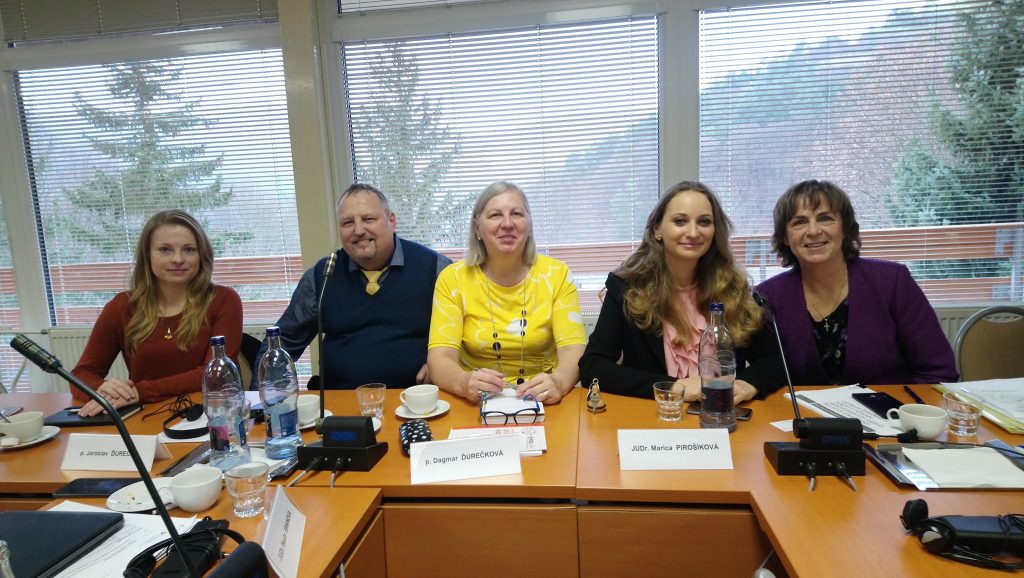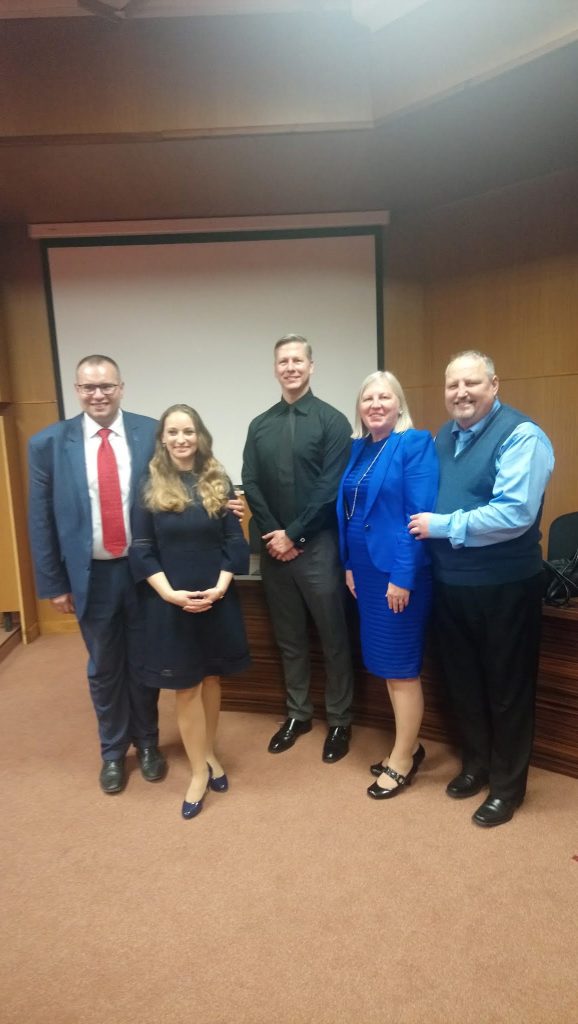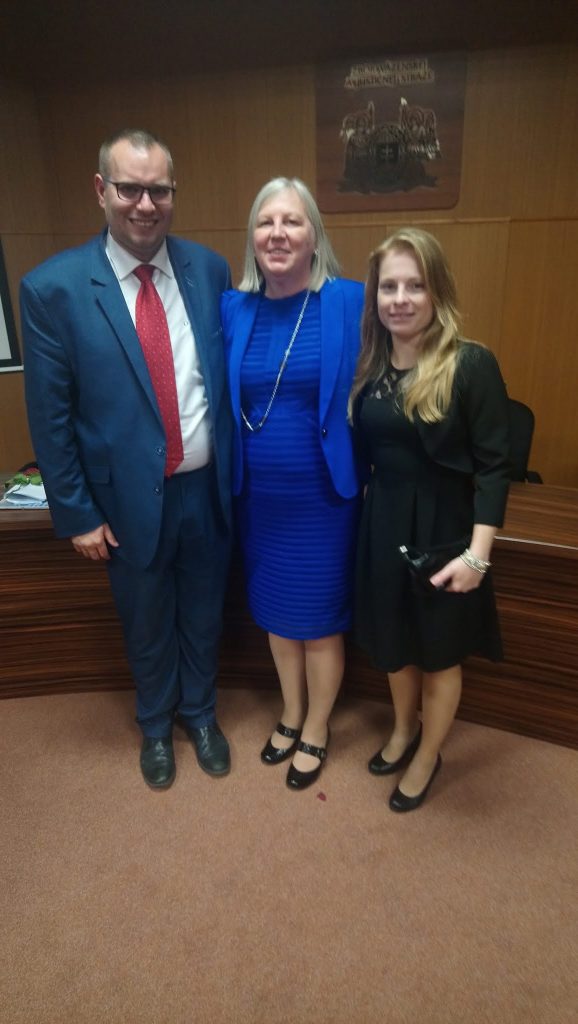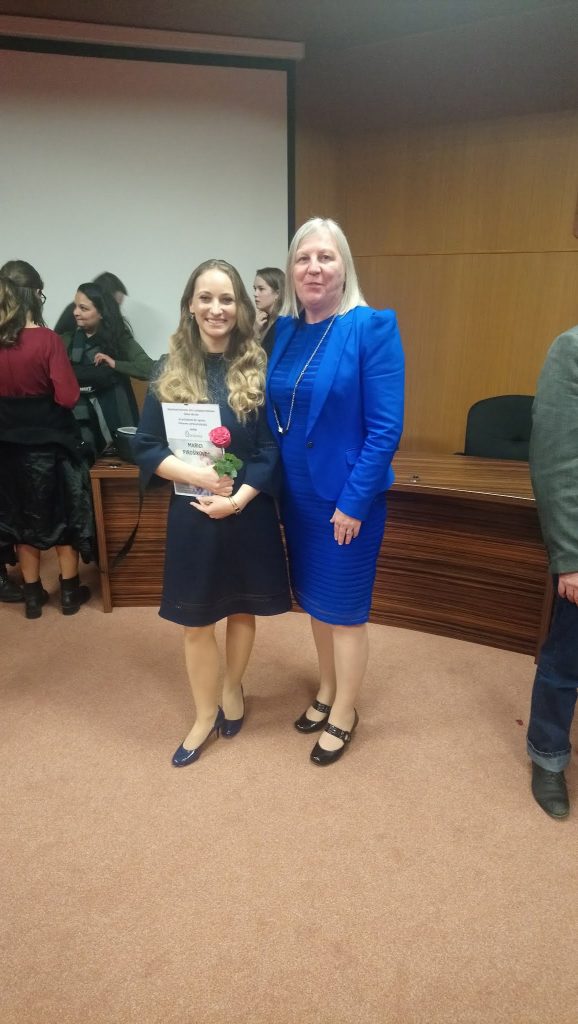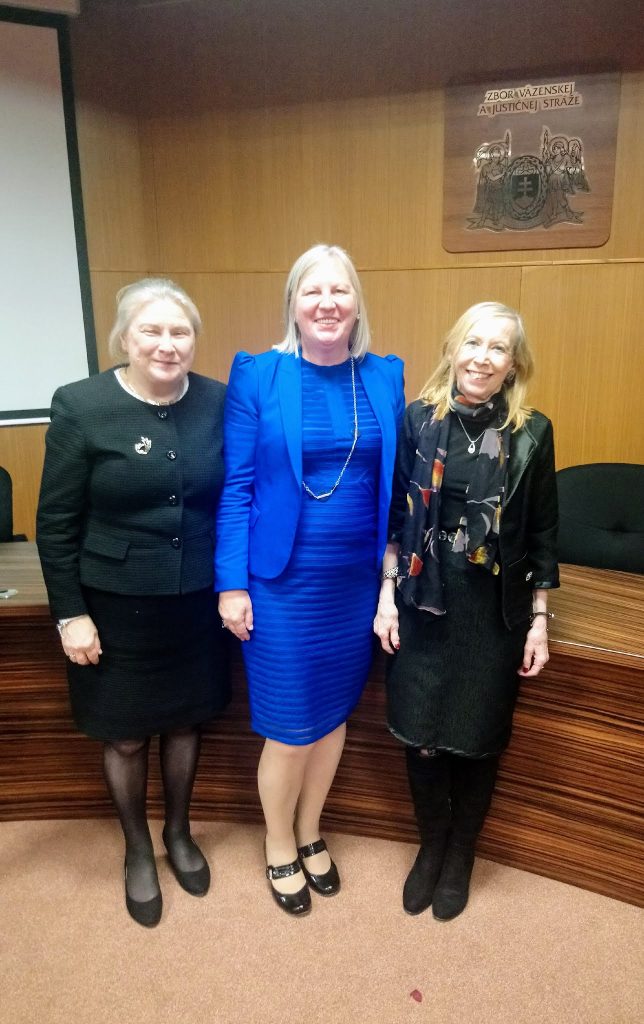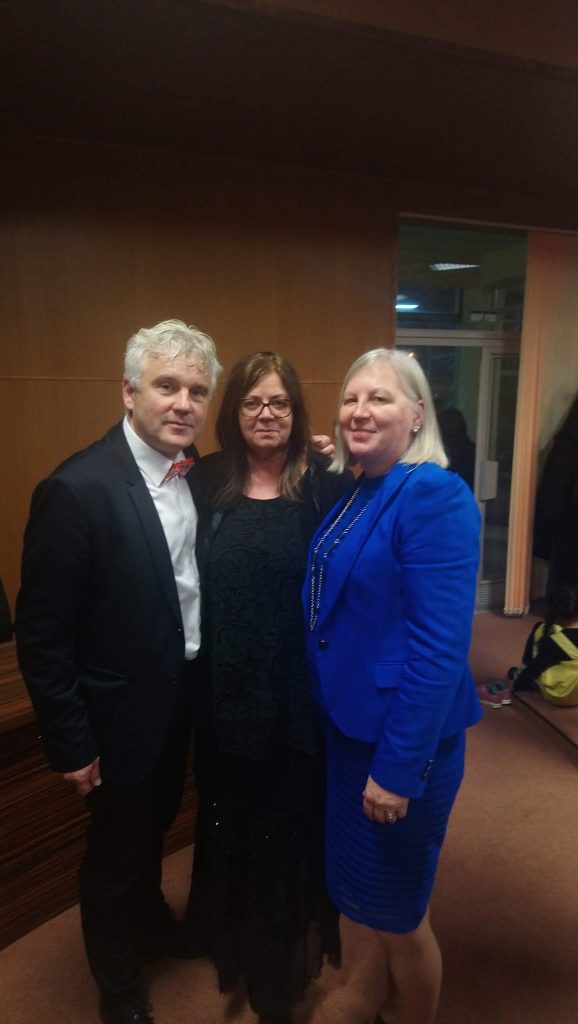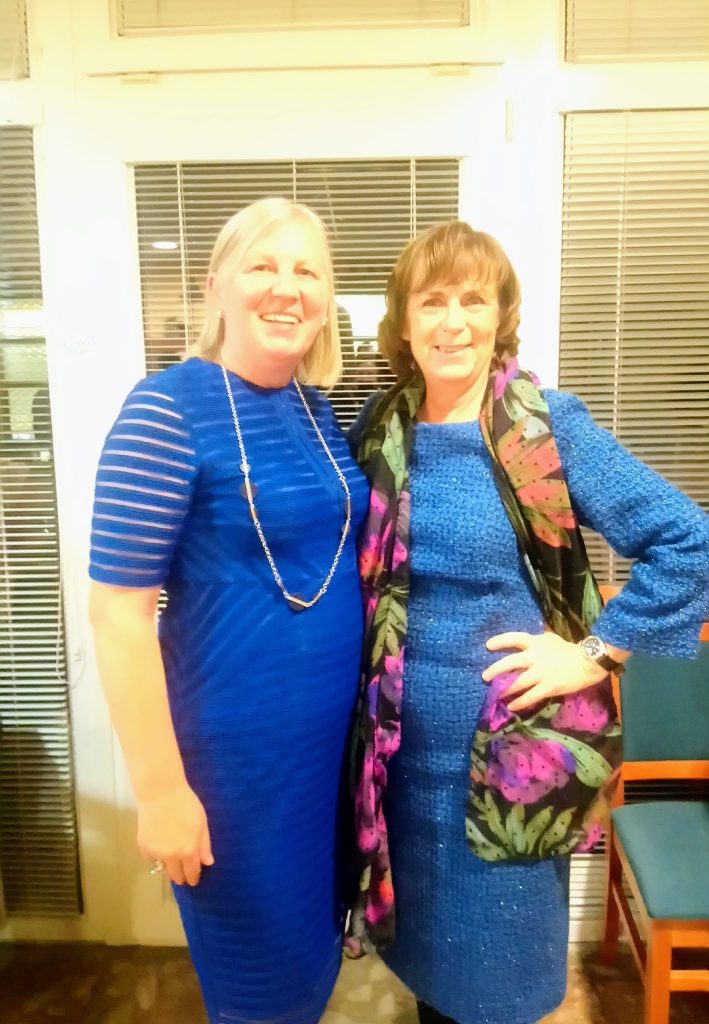a) Všeobecné zásady
202. The
first paragraph of Article 8 of the Convention guarantees to everyone
the right to respect for his or her
family life. As is well established in the Court’s case-law, the mutual
enjoyment by parent and child of each other’s company constitutes a
fundamental element of family life, and domestic measures hindering such
enjoyment amount to an interference with the
right protected by this provision. Any such interference constitutes a
violation of this Article unless it is “in accordance with the law”,
pursues an aim or aims that is or are legitimate under its second
paragraph and can be regarded as “necessary in a democratic
society” (see, among other authorities, K. and T. v. Finland [GC], no. 25702/94, § 151, ECHR 2001‑VII; and
Johansen, cited above, § 52).
203. In
determining whether the latter condition was fulfilled, the Court will
consider whether, in the light of
the case as a whole, the reasons adduced to justify that measure were
relevant and sufficient for the purposes of paragraph 2 of Article 8
(see, among many other authorities,
Paradiso and Campanelli, cited above, § 179). The notion of
necessity further implies that the interference corresponds to a
pressing social need and, in particular, that it is proportionate to the
legitimate aim pursued, regard being had to the fair
balance which has to be struck between the relevant competing interests
(ibid., § 181).
204. In so far as the family life of a child is concerned,the Court reiterates that there is a broad consensus, including in
international law, in support of the idea that in all decisions
concerning children, their best interests are of paramount importance
(see, among other authorities,
Neulinger and Shuruk v. Switzerland [GC], no. 41615/07, § 135,
ECHR 2010). Indeed, the Court has emphasised that in cases involving the
care of children and contact restrictions, the child’s interests must
come before all other considerations (see
Jovanovic, cited above, § 77, and Gnahoré v. France, no. 40031/98, § 59, ECHR 2000‑IX).
205. At
the same time, it should be noted that regard for family unity and for
family reunification in the event
of separation are inherent considerations in the right to respect for
family life under Article 8. Accordingly, in the case of imposition of
public care restricting family life, a positive duty lies on the
authorities to take measures to facilitate family
reunification as soon as reasonably feasible (K. and T. v. Finland, cited above, § 178).
206. In
instances where the respective interests of a child and those of the
parents come into conflict, Article
8 requires that the domestic authorities should strike a fair balance
between those interests and that, in the balancing process, particular
importance should be attached to the best interests of the child which,
depending on their nature and seriousness,
may override those of the parents (see, for instance, Sommerfeld v. Germany
[GC],no. 31871/96, § 64, ECHR 2003‑VIII (extracts)), and the references therein).
207. Generally,
the best interests of the child dictate, on the one hand, that the
child’s ties with its family must
be maintained, except in cases where the family has proved particularly
unfit, since severing those ties means cutting a child off from its
roots. It follows that family ties may only be severed in very
exceptional circumstances and that everything must be
done to preserve personal relations and, if and when appropriate, to
“rebuild” the family (see
Gnahoré, cited above, § 59). On the other hand, it is clearly
also in the child’s interest to ensure its development in a sound
environment, and a parent cannot be entitled under Article 8 to have
such measures taken as would harm the child’s health
and development (see, among many other authorities, Neulinger and Shuruk, cited above, § 136;
Elsholz v. Germany [GC], no. 25735/94, § 50, ECHR 2000-VIII; and Maršálek v. the Czech Republic,
no. 8153/04, § 71, 4 April 2006). An important international consensus
exists to the effect that a child shall not be separated from his or her
parents
against their will, except when competent authorities subject to
judicial review determine, in accordance with applicable law and
procedures, that such separation is necessary for the best interests of
the child (see Article 9 § 1 of the United Nations Convention
on the Rights of the Child, recited in paragraph 134 above). In
addition, it is incumbent on the Contracting States to put in place
practical and effective procedural safeguards for the protection of the
best interests of the child and to ensure their implementation
(see the United Nations Committee on the Rights of the Child General
Comment No. 14 (2013) on the right of the child to have his or her best
interests taken as a primary consideration, paragraphs 85 and 87, quoted
at paragraph 136 above).
208. Another
guiding principle is that a care order should be regarded as a
temporary measure, to be discontinued
as soon as circumstances permit, and that any measures implementing
temporary care should be consistent with the ultimate aim of reuniting
the natural parents and the child (see, for instance,
Olsson v. Sweden (no. 1), 24 March 1988, § 81, Series A
no. 130). The above-mentioned positive duty to take measures to
facilitate family reunification as soon as reasonably feasible will
begin to weigh on the competent authorities with progressively
increasing force as from the commencement of the period of care,
subject always to its being balanced against the duty to consider the
best interests of the child (see, for example,
K. and T. v. Finland, cited above, § 178). In this type of case
the adequacy of a measure is to be judged by the swiftness of its
implementation, as the passage of time can have irremediable
consequences for relations between the child and the parent
with whom it does not live (see, inter alia, S.H. v. Italy, no. 52557/14,
§ 42, 13 October 2015). Thus, where the authorities are responsible for
a situation of family breakdown because they have failed
in their above-mentioned obligation, they may not base a decision to
authorise adoption on the grounds of the absence of bonds between the
parents and the child
(see Pontes v. Portugal, no. 19554/09, §§ 92 and 99, 10 April 2012).
Furthermore, the ties between
members of a family and the prospects of their successful reunification
will perforce be weakened if impediments are placed in the way of their
having easy and regular access to each other
(see Scozzari and Giunta, cited above, § 174; and Olsson (No. 1),
cited above, § 81). However, when a considerable period of time has
passed since the child was originally taken into public care, the
interest of a child not to have his or her
de facto family situation changed again may override the interests of the parents to have their family reunited (see
K. and T. v. Finland, cited above, § 155).
209. As
regards replacing a foster home arrangement with a more far-reaching
measure such as deprivation of parental
responsibilities and authorisation of adoption, with the consequence
that the applicants’ legal ties with the child are definitively severed,
it is to be reiterated that “such measures should only be applied in
exceptional circumstances and could only be justified
if they were motivated by an overriding requirement pertaining to the
child’s best interests” (see, for example,
Johansen, cited above, § 78, and Aune, cited above, § 66).
It is in the very nature of adoption that no real prospects for
rehabilitation or family reunification exist and that it is instead in
the child’s best interests that he or she be placed
permanently in a new family (see R. and H. v. the United Kingdom, no. 35348/06, § 88, 31 May 2011).
210. In
determining whether the reasons for the impugned measures were relevant
and sufficient for the purpose of
paragraph 2 of Article 8 of the Convention, the Court will have regard
to the fact that perceptions as to the appropriateness of intervention
by public authorities in the care of children vary from one Contracting
State to another, depending on such factors
as traditions relating to the role of the family and to State
intervention in family affairs and the availability of resources for
public measures in this particular area. However, consideration of what
is in the best interests of the child is in every case
of crucial importance. Moreover, it must be borne in mind that the
national authorities have the benefit of direct contact with all the
persons concerned, often at the very stage when care measures are being
envisaged or immediately after their implementation.
It follows from these considerations that the Court’s task is not to
substitute itself for the domestic authorities in the exercise of their
responsibilities for the regulation of the care of children and the
rights of parents whose children have been taken
into public care, but rather to review under the Convention the
decisions taken by those authorities in the exercise of their power of
appreciation (see, for example,
K. and T. v. Finland,cited above, § 154; and Johansen, cited above, § 64).
211. The
margin of appreciation to be accorded to the competent national
authorities will vary in the light of the
nature of the issues and the seriousness of the interests at stake,
such as, on the one hand, the importance of protecting a child in a
situation which is assessed as seriously threatening his or her health
or development and, on the other hand, the aim to
reunite the family as soon as circumstances permit. The Court thus
recognises that the authorities enjoy a wide margin of appreciation in
assessing the necessity of taking a child into care (see, for example,
K. and T. v. Finland, cited above, § 155; and Johansen,
cited above, § 64). However, this margin is not unfettered. For example,
the Court has in certain instances attached weight to whether the
authorities, before taking a child into public care,
had first attempted to take less drastic measures, such as supportive
or preventive ones, and whether these had proved unsuccessful (see, for
example,
Olsson (no. 1), cited above, §§ 72-74; R.M.S. v. Spain, no. 28775/12, § 86, 18 June 2013, § 86; and
Kutzner v. Germany, no. 46544/99, § 75, ECHR 2002‑I). A stricter
scrutiny is called for in respect of any further limitations, such as
restrictions placed by the authorities on parental rights of access, and
of any legal safeguards designed to secure
an effective protection of the right of parents and children to respect
for their family life. Such further limitations entail the danger that
the family relations between the parents and a young child are
effectively curtailed (see
K. and T. v. Finland, cited above, ibid., and Johansen, cited above, ibid.).
212. In
cases relating to public-care measures, the Court will further have
regard to the authorities’ decision-making
process, to determine whether it has been conducted such as to secure
that the views and interests of the natural parents are made known to
and duly taken into account by the authorities and that they are able to
exercise in due time any remedies available
to them (see, for instance, W. v. the United Kingdom, 8 July 1987, § 63, Series A no. 121, and
Elsholz, cited above, § 52). What has to be determined is
whether, having regard to the particular circumstances of the case and
notably the serious nature of the decisions to be taken, the parents
have been involved in the decision-making process, seen
as a whole, to a degree sufficient to provide them with the requisite
protection of their interests and have been able fully to present their
case (see, for example,
W. v. the United Kingdom, cited above, § 64; T.P. and K.M. v. the United Kingdom
[GC], no. 28945/95, § 72, ECHR 2001‑V (extracts); Neulinger and Shuruk, cited above, § 139; and
Y.C. v. the United Kingdom, no. 4547/10, § 138, 13 March 2012).
From the foregoing considerations it follows that natural parents’
exercise of judicial remedies with a view to obtaining family
reunification with their child cannot as such be held against
them. In addition, in cases of this kind there is always the danger
that any procedural delay will result in the
de facto determination of the issue submitted to the court before
it has held its hearing. Equally, effective respect for family life
requires that future relations between parent and child be determined
solely in the light of all relevant considerations
and not by the mere effluxion of time (see W. v. the United Kingdom., cited above, § 65).
213. Whether the decision-making process sufficiently protected a parent’s interests depends on the particular circumstances
of each case (see, for example, Sommerfeld, cited above, § 68).
With a view to its examination of the present instance, the Court
observes that in the aforementioned case it was called upon to examine
the issue of ordering a psychological report on
the possibilities of establishing contact between the child and the
applicant. It observed that as a general rule it was for the national
courts to assess the evidence before them, including the means to
ascertain the relevant facts (see
Vidal v. Belgium, 22 April 1992, § 33, Series A no. 235‑B). It
would be going too far to say that domestic courts are always required
to involve a psychological expert on the issue of awarding contact to a
parent not having custody, but this issue depends
on the specific circumstances of each case, having due regard to the
age and maturity of the child concerned (see
Sommerfeld, cited above, § 71).
Zdroj: CASE OF STRAND LOBBEN AND OTHERS v. NORWAY
https://hudoc.echr.coe.int/eng#{%22docname%22:[%22\%22CASE%20OF%20STRAND%20LOBBEN%20AND%20OTHERS%20v.%20NORWAY\%22%22],%22documentcollectionid2%22:[%22GRANDCHAMBER%22,%22CHAMBER%22],%22itemid%22:[%22001-195909%22]}
Autor: Andrea
